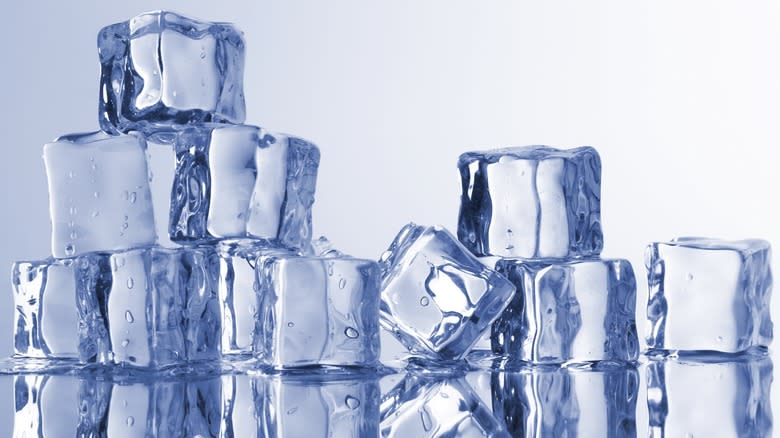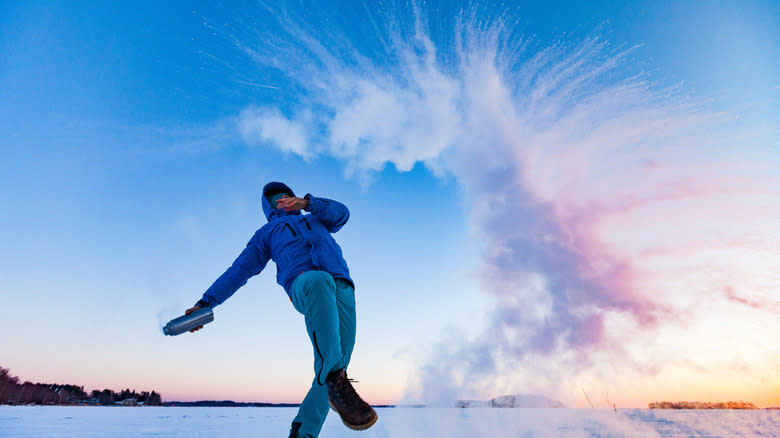Hot Water May Be The Secret To Freezing Ice Cubes In Under An Hour

- Oops!Something went wrong.Please try again later.
Science facts can sometimes seem pretty remote. How useful is it to know that electrons have a charge, really? But that's not always the case. Take ice, for example. It takes three to four hours for a regular-sized ice cube to go from water to ice. If you're hosting a party in an hour, that fun science fact is not so fun anymore.
But, before you run out to the store to buy a big bag of ice, wait. There's actually a neat trick called the Mpemba Effect that might speed up the process to as little as half an hour. It sounds like a superpower but you don't have to be a superhero to use it. It's as simple as using hot water instead of cold water when making ice. Yup, it's that easy. Supposedly, this method gives you clearer ice, too.
Freezing hot water may seem counterintuitive since common sense would have it that it would take longer for hot water to reach freezing temperature than cold water (and most physicists would agree with this). Still, it's worth a shot. To try it, just fill an ice tray with hot water, stick it in the freezer, and you'll (hopefully) have ice ready in no time. By the way, when we say hot, we mean really hot. Boil the water first and then immediately put it into the freezer.
Read more: 25 Popular Bottled Water Brands, Ranked Worst To Best
Does The Mpemba Effect Really Work?

The Mpemba Effect is named after Tanzanian game warden Erasto Mpemba who discovered it as a teenager while making ice cream in the 1960s. In a cooking class at school, he was told to wait after cooking an ice cream base until it was cool before putting it into the freezer. He didn't wait, only to discover that the ice cream froze faster when it started out hot rather than cold.
When British physicist Denis Osborne came to his school, Mpemba asked him why this had happened which eventually led to the joint scholarly publication on the phenomenon that gave it its name. The idea of hot water freezing faster than cold water goes back centuries before Mpemba was born. Aristotle wrote about the phenomenon when he was alive in the fourth century B.C. and many prominent thinkers and scientists have commented on it over the years, including René Descartes and Francis Bacon.
Even with all of this rich history behind the Mpemba Effect, there is still scientific dispute about whether or not it's actually real. Despite documented observations that it works, there are just as many experiments that have failed. The phenomenon suffers from a lack of repeatability and many variables that are practically impossible to control. Scientists don't understand why the Mpemba Effect works and most maintain that it doesn't exist at all -- in fact, it would violate a pretty major law of physics if it happened as described. Still, why not try it for yourself and see?
Read the original article on Tasting Table.

